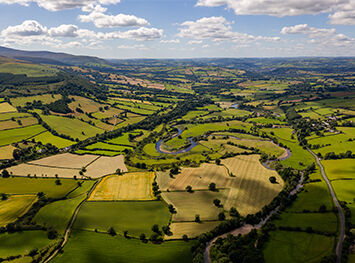BCU academics offer new approaches to landscape and planning

New cross-disciplinary research by BCU academics as just been published in the online open-access journal Infrastructures.
Assessing sustainable management strategies
The work has been created by Professor Kathryn Moore and Dr Anastasia Nikologianni - based in the Faculty of Arts, Design and Media - and Professor Peter Larkham (the Faculty of Computing, Engineering and the Built Environment).
Their new paper examines climate emergency adaptation and sustainable management strategies in rural and agricultural landscapes.
It identifies how two major projects - the Catalonian Landscape Observatory and the Netherlands 'Room for the River’ - have radically changed perceptions and management approaches to wider landscapes, using new means of resident engagement supported with specific legislation and policies, and new project governance structures.
These are positive and effective responses to the lack of a holistic and sustainable vision for the landscape and agricultural land, which is already having increasing adverse consequences for the environment as a whole and for our quality of life.
Identifying new ways to address environmental issues
This work extends their 2019 paper in Sustainability which, within a year and a half of publication, has already received 1,315 views and 1,724 downloads. A related paper will also soon be published in the ATINER Athens Journal of Architecture.
Anastasia explained the importance of climate crisis and the urgency to identify new ways to address the environmental and socio-economic issues this crisis brings.
She said: “The climate emergency is not a simple or small change to the climate, but a rather significant crisis of the environment that we are called to address.
“The COVID-19 pandemic we are going through has highlighted the importance of nature, landscape and open spaces in our daily lives and, therefore, we need to change the way in which we understand and perceive the areas we live at.
“Landscape design and planning are the tools to achieve a systemic change and demonstrate how a more resilient city/region can be delivered integrating environmental, social and cultural characteristics to future proof our cities and livelihoods.”
The importance of interdisciplinary research
Peter stressed the value of interdisciplinary and interprofessional research, especially in the response to the rapidly-changing world environment.
“The contributions of both landscape and planning to creating, managing and protecting our environments globally, nationally, regionally and locally are under-recognised and our efforts are too fragmented,” he said.
“We must change our ways of thinking and operating, and our research shows examples where this has successfully been done.”